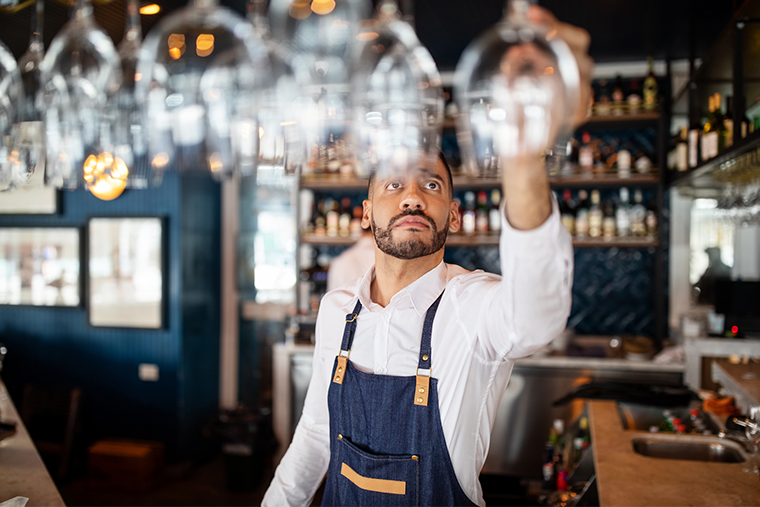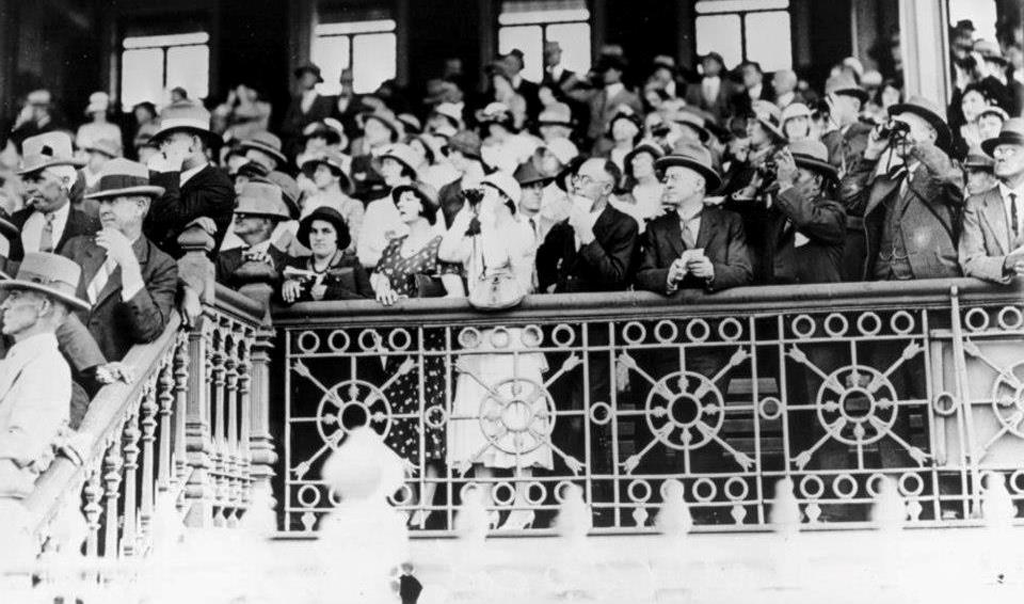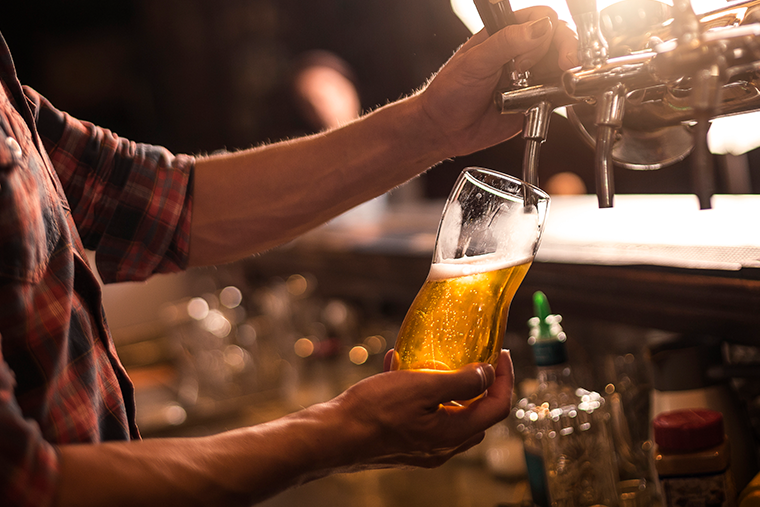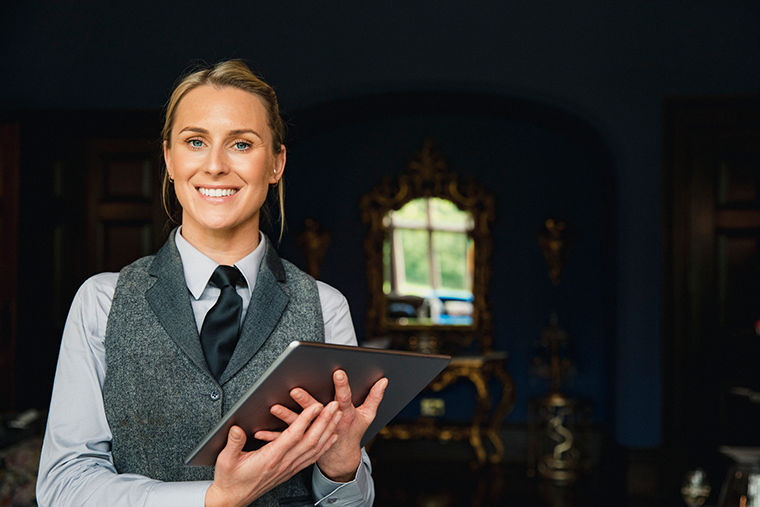This time last year the hospitality industry was contemplating the end to lockdown and the reopening of operations after a 3 month shutdown. During the past year and a half, the importance of social interaction not only in our personal lives but also in food and hospitality venues has been highlighted and should be celebrated industry wide.
From the opening of venues in mid 2020, operations were in demand and the only thing slowing trade was the reduced capacity restrictions placed on venues by State Government. This resulted in a supercharged ‘covid spike’ in gaming for July to September in most cases and through to December in some regions. Bar operations were relatively flat if not down up to 10% on the prior year and food struggled to gain traction until December 2020. With the relaxation of capacity numbers in November, the pre-Christmas period for most was a bonanza. The gaming boom definitely assisted pubs in getting up and running and setup pubs well, with most venues coming off Jobkeeper after the September 2020 quarter. Hospitality venues without gaming (high level restaurants and cafes) struggled more and those on Jobkeeper in March 2021 with many of these forced to close their doors.
Availability of staff was the biggest negative factor to come out of the first COVID-19 lockdown and it still is. During the lockdown, obviously our international backpacker and student workforce dried up and this was coupled with the local hospitality workforce also using the shutdown and Jobkeeper to fund further studies away from the hospitality industry. Most venues across the country are still struggling for hospitality workers especially kitchen staff. The further west you go the harder it is to find staff.
It is worth noting that whilst the Sydney CBD and other CBD’s foot traffic has certainly increased significantly over the last few months (prior to this latest lockdown), recently we saw Deloitte of all companies, say to their staff that it is up to them whether you come back into the office and when. This was not a short term announcement but rather for the long term, it will be interesting to see what other companies follow suit and the impact this has on the CBD’s around the country.
Other matters to come out of Covid - Succession & Estate Planning
With the forced shutdown, many publicans also suddenly had extra time and thought about their own succession. We have had increased discussions with large family groups that typically have a retiring matriarch/patriarch with a child actively working in the business driving value in operations, with other children either partially connected or disconnected with the business. Sadly with large sums of wealth, after the inevitable happens, there is often a fight between siblings to work out their ‘fair share’ especially when a large portion of the wealth is caught up in the business and freehold. We have successfully assisted our clients in dealing with this situation before it happens and have plans and a structured approach in place to ensure the family wealth is increased after the matriarch/patriarch is no longer around to drive business. Hopefully setting family members up to succeed with what they are good at and want to do.
The ATO definitely took off its gloves at the end of March 2021 and is currently demanding compliance and searching for tax revenue to return back to the ATO. We have had clients in the ‘Wealthy Australian Taskforce’ for the last ten years and we have successfully ensured operations are in compliance with the tax minefield that modern taxation law imposes, especially on large and complex family structures including trusts, companies, joint ventures, SMSF’s as well as the extended family members. The ATO have currently dropped their focus down to the next 5,000 wealthy Australians and have reinvigorated their push to understand how large family groups are structured and how individual entities interact with one another to ensure appropriate taxes are paid.
Your business healthcheck – the value of a second opinion
Many hospitality businesses are under strain at the moment due to COVID-19. Let one of our experienced Prosperity Directors who specialise in Food and Hospitality run their eye over your affairs to make sure you are on track to maximise wealth accumulation and asset protection.
Operations during Covid
For the year ending 2020, turnover was obviously effected, but most, if not all, of our clients had a better bottom line profit and this was based on two things.
Firstly, the Government assistance from Federal, State and Local levels definitely helped to keep business above water along with major support from our banking and landlord sector. The Jobkeeper package was the backbone of the assistance package and this coupled with the Cashflow Boost, payroll tax removal, bank assistance with debt deferral and removal or deferral of rates, land tax and gaming taxes definitely allowed venues to be prepared to reopen in mid 2020. The extension of asset write off provisions also allowed business owners to confidently invest in their assets during the shutdown period to offer better facilities upon opening.
Secondly, every hospitality business was forced to have a good look at costs and most were stripped back to bare bones in order to prepare for the unknown future. With this heavy focus on costs, pubs and other hospitality venues were forced to critically review what costs were essential to a good operation and in the process, costs that were ‘nice to have’ were soon found out. The three month time out also allowed management time to critically analyse what and why they had done things a certain way and to strategically analyse operations. The net result of this period is that the venues coming out of lockdown were definitely leaner and meaner and more focused on profitability as the risk of a second wave and further lockdowns were, and is, still a reality (as we are seeing now).
Hardest hit was the CBD area as many offices were forced to shift to working from home to continue operations. High density areas were found to be hotbeds of transmission (ie Ruby Princess), and with panic running rampant, the workforce in general decided it was much safer to work from home. Whilst city venues struggled, suburban venues boomed. There was a revolutionary push to the use of technology in society within a short period of time. Cashless trade went up to a new level and to date, use of cash is very much in the minority.
The other interesting observation during the lockdown period is the spike in online gaming mostly in unregulated and untaxed environments. Data from Illion showed that online gaming increased by up to 193% during the lockdown period – mostly to unregulated and untaxed providers.
Post Covid recovery (prior to latest lockdown)
From the opening of venues in mid 2020, operations were in demand and the only thing slowing trade was the reduced capacity restrictions placed on venues by State Government. This resulted in a supercharged ‘covid spike’ in gaming for July to September in most cases and through to December in some regions. Bar operations were relatively flat if not down up to 10% on the prior year and food struggled to gain traction until December 2020. With the relaxation of capacity numbers in November, the pre-Christmas period for most was a bonanza. The gaming boom definitely assisted pubs in getting up and running and setup pubs well, with most venues coming off Jobkeeper after the September 2020 quarter. Hospitality venues without gaming (high level restaurants and cafes) struggled more and those on Jobkeeper in March 2021 with many of these forced to close their doors.
Next round of high wealth ATO Audit activity
Conclusion
The resilience of the food and hospitality sector during these toughest of times has led to a crashing of yields with prices for hotels and gaming authorities at all time highs. Societies need for social interaction at a good hospitality venue, especially in tough times, has been highlighted by this covid pandemic and acknowledged by keen investors as an ideal time to increase their holdings. We have seen most of the large Sydney family groups snapping up venues in quick fashion both in other cities around the country and in rural areas. This may be in line with the old fashioned saying by Winston Churchill – "Never let a good crisis go to waste”.
Please click here to find out more or click here to start the process on your complimentary business health check.



